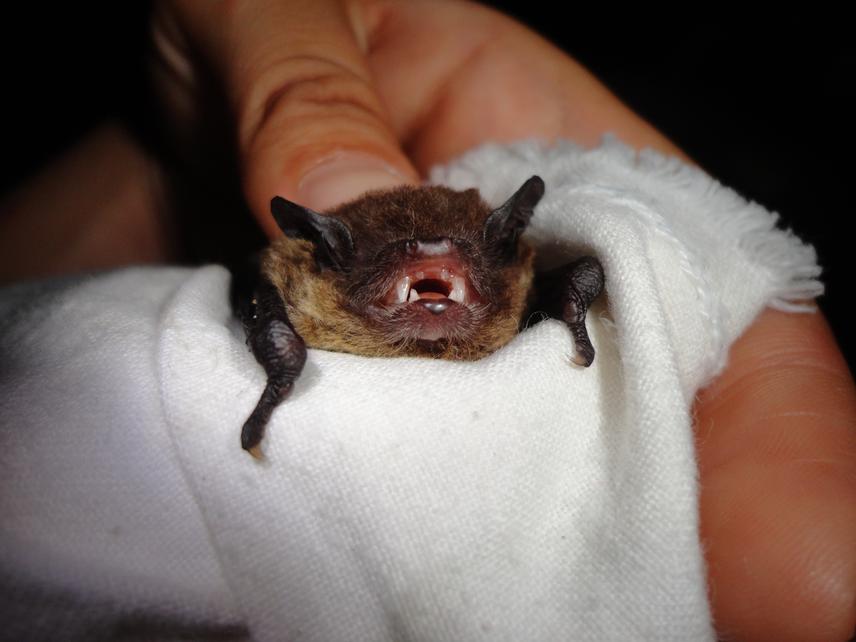Abigail Martinez Serena
This project aims to determine the structure (richness, dominance and similarity) and activity levels of aerial insectivorous bats’ in oil palm plantations and pristine forest in the Lacandona Rainforest.

An insectivorous bat (Eptesicus furinalis) captured for reference call recording.
Natural landscape degradation is been mainly given by human actions, generating impacts on the biodiversity.The changes in land use as the establishment of new monoculture plantations affect many taxa. Given the suitable conditions that tropical rainforests offer for different crops, this ecosystem has been impacted considerably. This land use change generate modifications in the structure and complexity of the habitat and the biodiversity it keeps. The crop of oil palm (Elaeis guineensis) has had rapid expansion and intensification in the Latin America region. This is due to the increasing demand for the oil as raw materials in the food and non-food industry.
The information of the effect of these plantations on mammals is still limited, especially for the Neotropical region. In aerial insectivorous bats (AIB’s) have not been assessed the changes on their assemblage caused by this monoculture. It becomes imperative to study the effects on the insectivorous bats, because they play an important role in tropical ecosystems in the control of insect populations. The region of the Lacandona rainforest is notorious for its great biodiversity, it contains the most diverse mammal fauna in the country. It is also considered a top priority for the conservation of Mesoamerican bats. Moreover, is the last greatest expanse of tropical forest in Mexico and is part of the largest area (corridor) of tropical forest north of the Amazon.
The aim of this project is to evaluate the structure (species richness, dominance and similarity) and activity levels of the assemblage of aerial insectivorous bats), in tropical rainforest areas, tree fall gaps and oil palm plantations. Through the use of acoustic monitoring with ultrasonic recorders in the Montes Azules Biosphere Reserve; this reserve is within MAB-UNESCO program. For the region, this will be the first time an acoustic study is carried out, which will give valuable information about insectivorous bats diversity and their response to agriculture, in this case, oil palm.